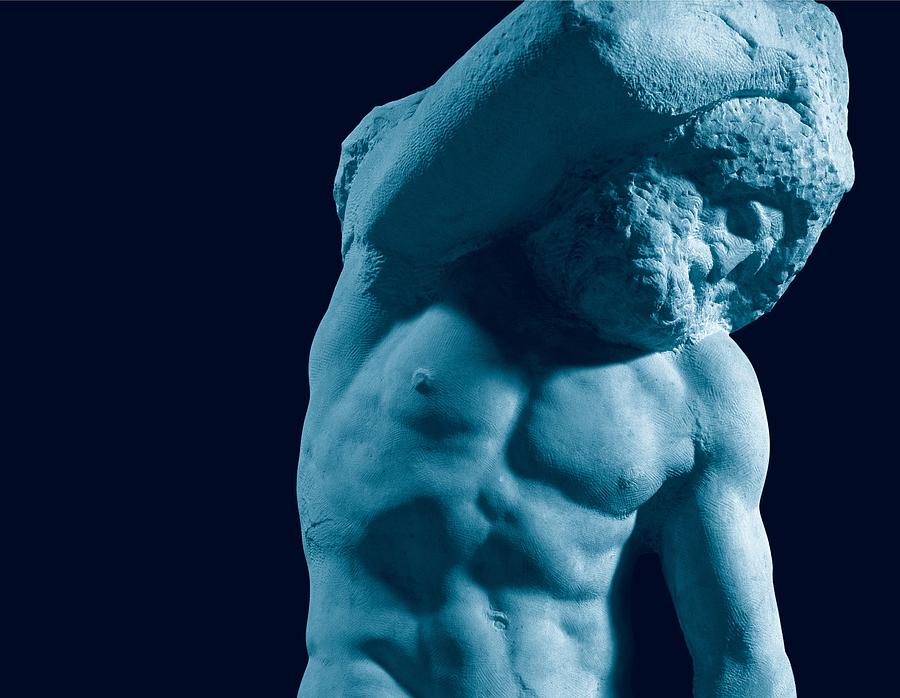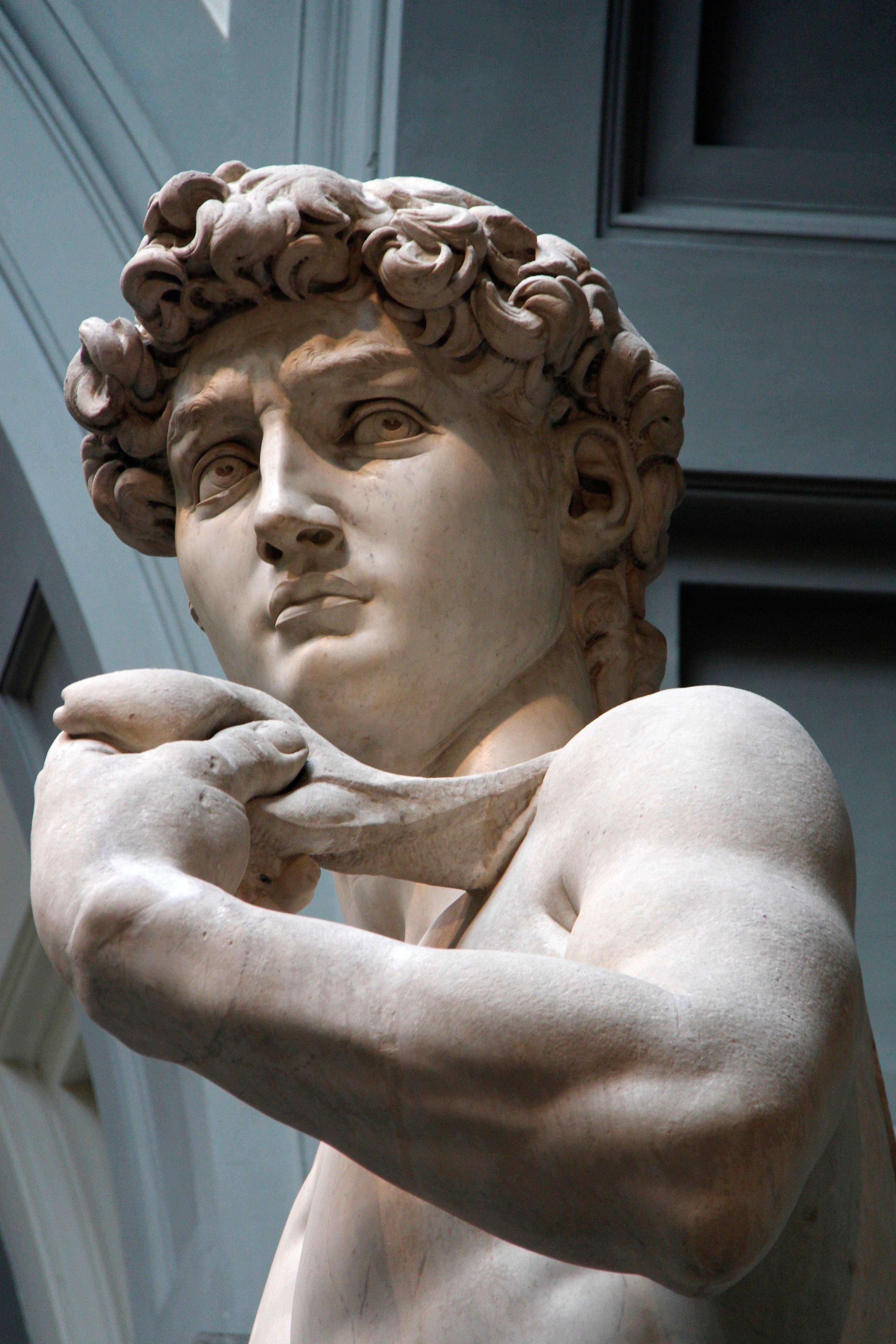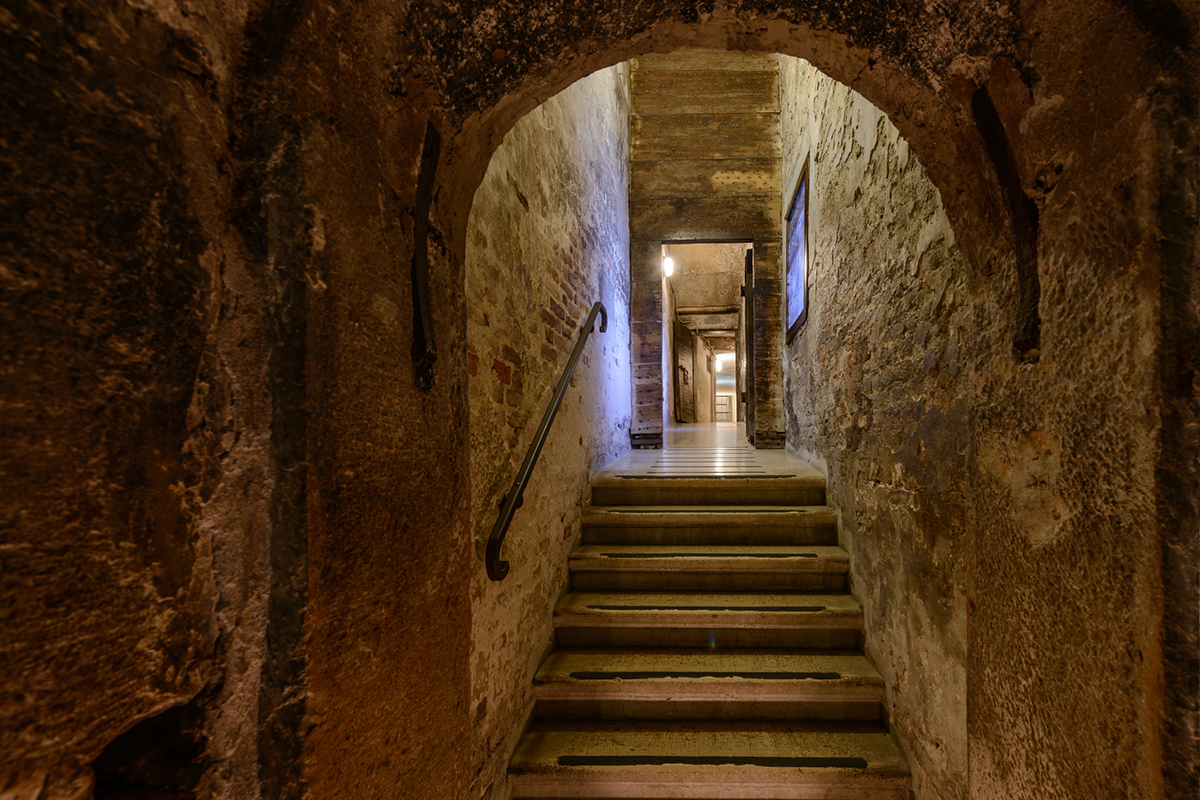
Obra do artista Michelangelo exposta na Galleria dei Prigioni, na
Le sculture incompiute di Michelangelo,chiamate "Le Prigioni"queste figure imprigionate nel marmo ancora da scolpire,descritte dal regista di"Tormento e l'Es.

Lot. 56 sculpture michelangelo prison Unicart Auctions
Michelangelo's creative streak continued, as he was summoned back to Rome in 1505 by Pope Julius II to design the Pope's own tomb. The project was never completed, however, due to several factors. Nevertheless, a sculpture of Moses was eventually produced for that tomb. Sculpture depicting Moses by Michelangelo.

Red walls and new neighbours for Michelangelo's Doni Tondo ArtTravArtTrav
Le sculture non-finite dei Prigioni avrebbero dovuto simboleggiare l'allegoria dell'Anima imprigionata nel Corpo, schiava delle debolezze umane. Dopo la morte di Michelangelo i Prigioni furono trovati nel suo studio fiorentino di via Mozza dal nipote Leonardo Buonarroti.

Galleria dell'Accademia HD YouTube
Attributed to Daniele da Volterra, Michelangelo Buonarroti, c. 1545, oil on wood, 88.3 x 64.1 cm ( The Metropolitan Museum of Art) Michelangelo Buonarotti—the Italian Renaissance painter, sculptor, architect, and poet—was called "Il Divino" (The Divine One) by his contemporaries because they perceived his artworks to be otherworldly.

Tout ce que vous devez savoir sur la Pietà de MichelAnge à Rome
I Prigioni sono un gruppo di sei statue di Michelangelo Buonarroti eseguite per la tomba di Giulio II: due di essi, del 1513 circa (secondo progetto), sono finiti e si trovano oggi al Louvre a Parigi, mentre gli altri quattro, databili al 1525 - 1530 circa, sono vistosamente "non-finiti" e sono conservati nella Galleria dell'Accademia a Firenze,.

San Matteo (Michelangelo) Wikipedia Scultura antica, Michelangelo
Michelangelo - Virtual Tour. Michelangelo (1475 - 1564) was an Italian sculptor, painter, architect, and poet of the Renaissance who was born in Florence, and who had a significant influence on the development of Western art.. It is part of the "unfinished" series of prisoners called "Prigioni" in Italian "intended for the Tomb.

San Matteo.15051506. Avrebbe dovuto fare parte di una serie di dodici
"Young Slave" by Michelangelo is a marble sculpture that started about 1525-1530. It is part of the "unfinished" series of prisoners called "Prigioni" in Italian "intended for the Tomb of Julius II. The first version of the tomb of Julius II had a series of prisoners planned for the lowest level of the mausoleum.

Michelangelo's scultures "I Prigioni" and in the background... News
I "Prigioni" di Michelangelo oggi si trovano tra il Louvre di Parigi e la Galleria dell'Accademia di Firenze. Hanno da sempre affascinato amanti dell'arte e studiosi, non solo per il concitato espressionismo che li caratterizza, ma anche per l'abbacinante enigmatica aura che li avvolge.

bearded slave . Marble sculpture by Michelangelo , circa 1503.... News
Prigioni di Michelangelo, Galleria dell'Accademia, Firenze Crossmedia Group 677 subscribers 1.9K views 2 years ago #andràtuttobene #togetherathome #iorestoacasa L'Accademia potrebbe essere.

How To Spend 36 Hours in Florence, Italy Where To Go In
Marzo 9, 2018 di Ado I Prigioni di Michelangelo Sei grandi Prigioni furono scolpiti da Michelangelo per ornare il monumento funerario di papa Giulio II. Quando le statue furono eliminate dal progetto seguirono il destino espositivo che li portò a Firenze e a Parigi. Michelangelo, Prigioni, 1513-1530, marmo.

Michelangelo, Pietà Rondanini Michaelangelo, Essay, Extended, Sculpture
Reconstruction of the project by Michelangelo for the Julius II Tomb dated 1505 (1st project). Inspired reconstruction by F. Russoli, 1952 Later, after the pope's death in 1513, in 1521, and finally in 1534, when the Prisoners were no longer part of the project, the original design was scaled down to a more modest proportion.. Michelangelo's nephew Leonardo Buonarroti donated the Prisoners.

Chiara on Twitter "I Prigioni, Atlante, Michelangelo, Galleria dell
I Prigioni sono un gruppo di 6 statue realizzate da Michelangelo per il mausoleo di Papa Giulio II.Esiste anche un ulteriore scultura detta dei prigioni, ma l'attribuzione a Michelangelo è incerta tutt'oggi. Le 2 statue più avanti nella realizzazione sono conservate al museo del Louvre, mentre le altre 4 lasciate incompiute e soprannominate "I prigioni fiorentini" sono all'interno.

Buonarroti Michelangelo, Prisoner Photograph by Everett Fine Art America
Michelangelo See all media Category: Arts & Culture In full: Michelangelo di Lodovico Buonarroti Simoni Born: March 6, 1475, Caprese, Republic of Florence [Italy] Died: February 18, 1564, Rome, Papal States (aged 88) Notable Works: "Bacchus" "Crucifixion of St. Peter" "David" "Madonna and Child with the Infant St. John" "Moses" "Pietà"

2012 Biological Evolution and the Nature of Human Beings » Euresis
Title: Rebellious Slave Artist: Michelangelo Year: 1513 Materials: Marble Dimensions: 263 cm (104 in) Type: 215 cm (85 in) Museum: Musée du Louvre Michelangelo Name: Michelangelo di Lodovico Buonarroti Simoni Born: 1475 - Caprese near Arezzo, Republic of Florence Died: 1564 (aged 88) - Rome, Papal States (present-day Italy)

David Michelangelo / 'David' Posters Michelangelo
The Endgame. One of the Watergarden's more notable patrons during the AIDS pandemic happens to play a key role in the current one. Dr. Marty Fenstersheib, who now leads Covid-19 testing efforts for the Santa Clara County Department of Public Health, spent the better part of the '80s developing the agency's then-revolutionary AIDS-treatment program, which merged medical care with.

Le Prigioni Palazzo Ducale
Michelangelo di Lodovico Buonarroti Simoni ( Italian: [mikeˈlandʒelo di lodoˈviːko ˌbwɔnarˈrɔːti siˈmoːni]; 6 March 1475 - 18 February 1564), known mononymously as Michelangelo ( English: / ˌmaɪkəlˈændʒəloʊ, ˌmɪk -/ [1] ), was an Italian sculptor, painter, architect, [2] and poet of the High Renaissance.